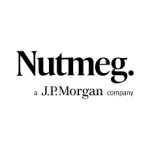Top 5 Alternatives to Neil Woodford’s Income Funds
With the fund management industry rocked by the recent news that star fund manager Neil Woodford will be leaving Invesco Perpetual, we take a look at five alternatives to consider for those investors who may be taking this news as a good time to review their options.
Decision to leave
Neil Woodford is undoubtedly one of the best known stars of the fund management industry and given the fact that across the giant Invesco Perpetual Income and High Income funds alone he runs close to £25 billion, it is indeed a news item worthy of further consideration. In total, he manages over £30 billion which is just under half of Invesco’s total assets.
Although the news will hopefully not bring about any significant changes in the very short term and investors should not be too hasty to make any sudden changes, his decision to leave will inevitably create difficulties and will no doubt give many income investors a cause for concern.
Performance speaks volumes
The Invesco Perpetual Income fund has returned 87.7% over five years, compared with 86.8% in the UK Equity Income fund sector. The High Income fund has returned 87.9% compared with an 86.8% from the UK Equity Income fund sector.
But it is over the longer term that Woodford has really shone. From February 1988 to October 2013, the High Income fund rocketed by more than 2,200%, turning £1,000 into £23,265. Over the past ten years, Mr Woodford has grown savers’ money in the income funds by 215% while the average fund grew by 129%.
Will it make any difference?
It is important not to underestimate this stellar performance, without which a great number of investors would now be considerably poorer. He is certainly among an elite group of fund managers who consistently outperform the market although for how long this could have continued with fund sizes of £13.9 billion and £10.6 billion is far from clear.
To take the view that investors should be moving completely away from these funds on the basis that without Neil Woodford nothing at Invesco Perpetual will ever be the same again is perhaps taking things too far, especially since he is not going for another six months and is also being succeeded by a very capable replacement – Mark Burnett, fund manager of the Invesco Perpetual Strategic Income fund.
Alternative options
However, despite commentators cautioning against selling Woodford’s income funds in panic, there is no doubt that some investors may be looking for an alternative home for their equity income exposure and mulling over whether they should stay put or move on, since this effects both existing and new investments equally.
With this in mind, we take a look at Fair Investment Company’s Top 5 investment alternatives for those hungry for income and perhaps considering what to do:
1. Artemis Income fund
This fund is managed by Adrian Frost and Adrian Gosden who have managed the fund for over a decade and have done very well. The fund has been consistently in the second quartile over 1, 3 and 5 years making it very consistent, only underperforming the IMA UK Equity sector average in three of the last 10 calendar years. The fund has top quartile performance since its launch in 2000.
The £6 billion fund aims to produce a rising income with capital growth from a portfolio primarily made up of investments in the UK including ordinary shares, convertible and fixed interest securities and has returned 20.1%, 40.4% and 71.6% over the last 1, 3 and 5 years. Like Invesco Perpetual High Income, the fund tends to lag behind its peers in fast-rising markets but has a much better record at the protecting against the downside.
The fund yields 3.8% and the managers have had a good record of income generation in the past. Payments are made twice yearly. The portfolio is primarily exposed to large caps, with the likes of GlaxoSmithKline, Centrica and Vodafone appearing in the top 10 holdings.
The Artemis Income fund is Gold rated by Morningstar OBSR Fund Ratings and available at 0% initial charge plus a 0.2% discount on annual management charges via the Fair Investment Fund Supermarket.
2. Threadneedle UK Equity Income fund
The Threadneedle UK Equity Income fund has been run by Leigh Harrison since February 2006, with co-manager Richard Colwell joining them in September 2009. Since Harrison has been at the helm, it has beaten the sector in every year except in 2009, when – like Invesco Perpetual High Income – it failed to rebound as strongly as many of its competitors. Nevertheless, this consistency means the fund is a top-quartile performer in the IMA UK Equity Income sector over three and five years.
The aim of the fund is to provide income with the potential to grow the amount you invested as well by investing at least two-thirds of its assets in shares of small, medium and large companies in the UK – this makes the £2.1 billion fund slightly more aggressive than Artemis Income. It has just 51 holdings and, like Artemis Income and Woodford’s funds, its largest individual positions are blue chip mega-caps such as Royal Dutch Shell, AstraZeneca and GlaxoSmithKline plc.
The fund has returned 24.1%, 52.1% and 82.4% over the last 1, 3 and 5 years respectively and has a historical yield of 3.6%, which is slightly below average for the sector; however, it has grown its net distribution over the last year, which it pays out quarterly.
The Threadneedle UK Equity Income fund is Silver rated by Morningstar OBSR Fund Ratings and available at 0% initial charge plus a 0.2% discount on annual management charges via the Fair Investment Fund Supermarket.
3. Schroder Income Maximiser fund
Schroder Income Maximiser is managed by Thomas See who has managed the fund since April 2009. The fund has outperformed its sector average over 1 and 5 years as well as since the fund was launched in November 2005.
The £1 billion fund’s investment objective is to provide income with potential for capital growth primarily through investment in equity and equity related securities of UK companies. The fund will also use derivative instruments to generate additional income which can make the fund more volatile than the UK equity income sector average.
The fund aims to deliver a target yield of 7% per year and has returned 24.2%, 31.9% and 78.8% over the last 1, 3 and 5 years respectively. The fund has a relatively small number of holdings (42 in total) and is predominantly exposed to large caps with the financial sector making up nearly a third of its asset allocation. The fund’s current dividend yield is 3.8% per year and it pays out quarterly.
The Schroder Income Maximiser fund is Bronze rated by Morningstar OBSR Fund Ratings and available at 0% initial charge plus a 0.2% discount on annual management charges via the Fair Investment Fund Supermarket.
4. AXA Framlington Equity Income fund
The final fund in our selection of alternatives is the AXA Framlington Equity Income fund managed by George Luckraft who joined AXA Framlington in 2002. The fund has recently stepped up its performance against the sector average and is top quartile over the last 6 months and second quartile over 1 year.
The fund’s objective is to produce a higher than average yield combined with long term growth of income and capital. Investment is made principally in UK equities and convertible shares of companies which, in the Manager’s opinion show above average profitability, management quality and growth.
The fund is one of the smallest in its sector at £137m and has returned 20.1%, 39.1% and 46.6% over the last 1, 3 and 5 years respectively. The fund’s underlying yield is currently 3.8% per year which it pays out twice yearly and has a total of 73 holdings invested across large cap, small cap and AIM, giving it the potential to be more volatile than other funds in its sector.
The AXA Framlington Equity Income fund is Silver rated by Morningstar OBSR Fund Ratings and available at 0% initial charge plus a 0.2% discount on annual management charges via the Fair Investment Fund Supermarket.
5. Investec Enhanced Income Plan
The last option in our selection of alternatives is an investment plan rather than a fund. The main difference between the two is that investment plans have fixed terms (5 or 6 years) rather than being open ended, and they also offer some protection against a falling market since they contain what is known as conditional capital protection rather than putting your capital fully at risk on a daily basis.
The main feature of Investec’s Enhanced Income Plan is that it offers a high level of fixed income at 6.12% each year, which is also paid out as 0.51% per month whereas most equity funds offer either quarterly or twice yearly income. The income is fixed and is therefore paid to you regardless of the performance of the stock market so the investor has the certainty of knowing at the outset exactly how much they will receive and for how long. Since yields on investment funds are variable this is a distinct difference which in the current climate could make for an attractive income alternative.
Another main differentiator from funds is the conditional capital protection which means that the return of your initial investment is conditional on the FTSE not falling by more than 50% of its starting value. If the FTSE stays within this 50% barrier throughout the investment term then you will receive a full return of your original investment but if it does not, and the index also finishes lower its value at the start of the plan, your initial investment will be reduced by 1% for every 1% fall in the FTSE. You could lose some or all of your initial investment
One final important difference is that unlike a fund, your investment is used to purchase securities issued by Investec Bank plc and so their ability to meet financial obligations becomes an important consideration. Fitch is one of main global credit rating agencies and as at 28th November 2012, Investec Bank plc has a credit rating of BBB- with a negative outlook. The ‘BBB’ rating denotes an adequate capacity for payment of financial commitments although adverse business or economic conditions are more likely to impair this capacity with the ‘-‘ signifying it is at the lower end of this rating grade. The negative outlook indicates that the rating may be lowered in the short to medium term, i.e. in the next 6 months to 2 years.
By combining a high fixed income with conditional capital protection, the Enhanced Income Plan from Investec Bank has been our most popular income investment.
A note on independent ratings from OBSR
Morningstar OBSR is an independent consultancy specialising in investment analysis. Their fund ratings are based on a proven research process that takes into account the multiple factors vital to a fund’s success. The research combines qualitative analysis (i.e. the quality of the management team and the fund selection process) with quantitative analysis (i.e. the fund’s past performance).
The top three ratings – Gold, Silver and Bronze – indicate that the fund is highly regarded by OBSR analysts. The very highest ratings are given to funds which, in the analysts’ opinion, have the strongest ability to outperform its benchmark and peers through time, within the context of the risks taken – the stronger the conviction that this will happen, the higher the rating.
Fair Investment Fund Supermarket
With over 1,500 funds from over 90 investment managers, the Fair Investment Fund Supermarket offers a vast choice of income funds, many of which have 0% initial charge as well as a discount on annual management charges of up to 0.2%.
Click here to compare our UK Equity income fund selections >>
Investment plans
As an alternative to open ended investment funds the defined return and defined risk offered by fixed term investments offer investors a different approach to achieving income. Their conditional capital protection also means that your initial investment has some protection against a falling market since the FTSE 100 needs to fall by more than 50% before your capital is at risk. Combined with either a fixed or variable income and these plans can offer an attractive balance of risk versus rewards.
Click here to compare our Income Investment plan selections >>
No news, feature article or comment should be seen as a personal recommendation to invest or switch existing investments. The value of investments and income from them can fall as well as rise and you may not get back the full amount invested. Different types of investment funds carry different levels of risk and may not be suitable for all investors. Prior to making any decision to invest, you should ensure that you are familiar with the risks associated with a particular investment. If you are at all unsure of the suitability of a particular investment, both in respect of its objectives and its risk profile, you should seek independent financial advice. Tax treatment depends on your individual circumstances and may change.
These are structured investment plans that are not capital protected and are not covered by the Financial Services Compensation Scheme (FSCS) for default alone. There is a risk of losing some or all of your initial investment. There is a risk that the company backing the plan or any company associated with the plan may be unable to repay your initial investment and any returns stated. In addition, you may not get back the full amount of your initial investment if the plan is not held for the full term. The past performance of the FTSE 100 Index is not a guide to its future performance.
Tags





